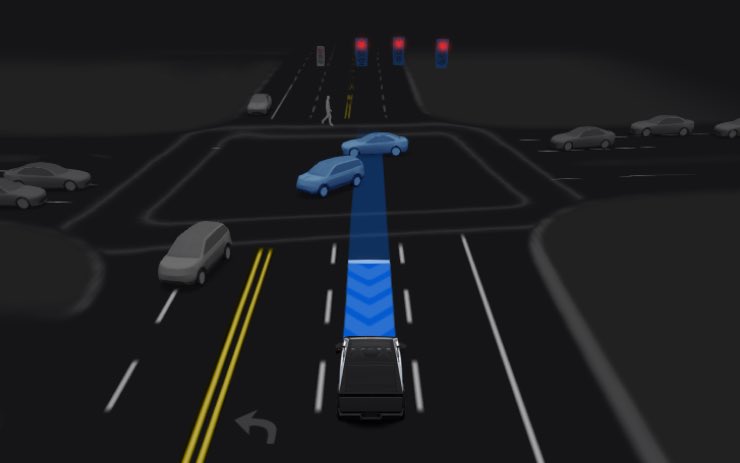Tesla has announced the rollout of Full Self-Driving (FSD) for Cybertruck owners in Canada, following its debut in the US back in September. This exciting development comes just a few weeks after Cybertrucks were delivered to Canadian customers.
The arrival of FSD for Cybertruck owners in Canada marks a significant step forward in Tesla’s autonomous driving technology. With FSD, Cybertruck owners will have access to advanced features that enable the vehicle to navigate on its own, including lane changes, parking assistance, and more.
This move underscores Tesla’s commitment to pushing the boundaries of self-driving technology and delivering innovative solutions to its customers. By offering FSD for Cybertruck owners in Canada, Tesla is showcasing its dedication to providing cutting-edge technology and enhancing the driving experience for its customers.
The integration of FSD into Cybertrucks in Canada also highlights the growing demand for autonomous driving technology in the country. As more drivers seek out advanced safety features and convenience options, Tesla is at the forefront of delivering on these expectations with its FSD capabilities.
Overall, the rollout of FSD for Cybertruck owners in Canada represents a significant milestone for Tesla and the future of autonomous driving technology. With this latest development, Canadian Cybertruck owners can look forward to a more seamless and advanced driving experience on the roads. The world of technology is constantly evolving, with new innovations and advancements being made every day. One of the most exciting developments in recent years is the rise of artificial intelligence (AI). AI is a branch of computer science that focuses on creating machines that are capable of learning and adapting to new situations.
One of the key benefits of AI is its ability to perform tasks that would normally require human intelligence. This includes things like speech recognition, decision-making, and problem-solving. AI has already been integrated into many aspects of our daily lives, from virtual assistants like Siri and Alexa to self-driving cars and personalized recommendations on streaming services.
But AI is not without its challenges. One of the biggest concerns surrounding AI is the potential for job loss. As machines become more advanced and capable of performing complex tasks, there is a fear that they will replace human workers in many industries. This has led to calls for regulations and policies to ensure that AI is used responsibly and ethically.
Another concern is the potential for AI to be used for malicious purposes. There are fears that AI could be weaponized or used to manipulate public opinion. This has led to calls for increased transparency and oversight when it comes to the development and deployment of AI technology.
Despite these challenges, the potential benefits of AI are vast. AI has the potential to revolutionize industries like healthcare, finance, and transportation, making processes more efficient and improving outcomes for consumers. It also has the potential to tackle some of the world’s biggest challenges, like climate change and poverty.
As AI continues to advance, it is important that we approach its development with caution and responsibility. By working together to create ethical guidelines and regulations, we can ensure that AI is used for the greater good and that its benefits are shared by all. The future of AI is exciting, and with the right approach, it has the potential to change the world for the better.

